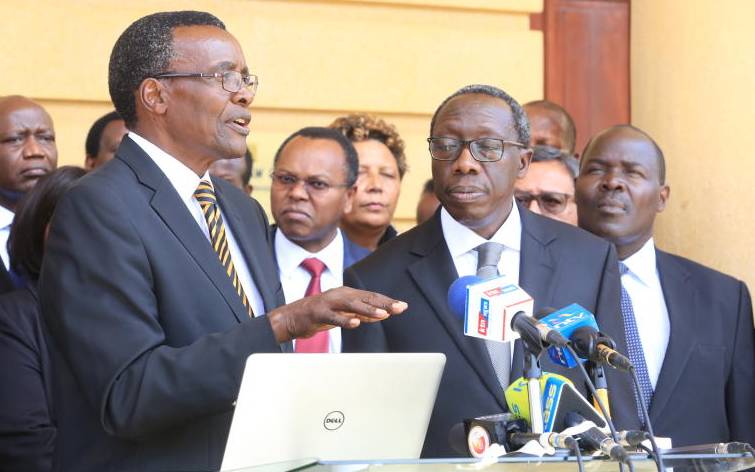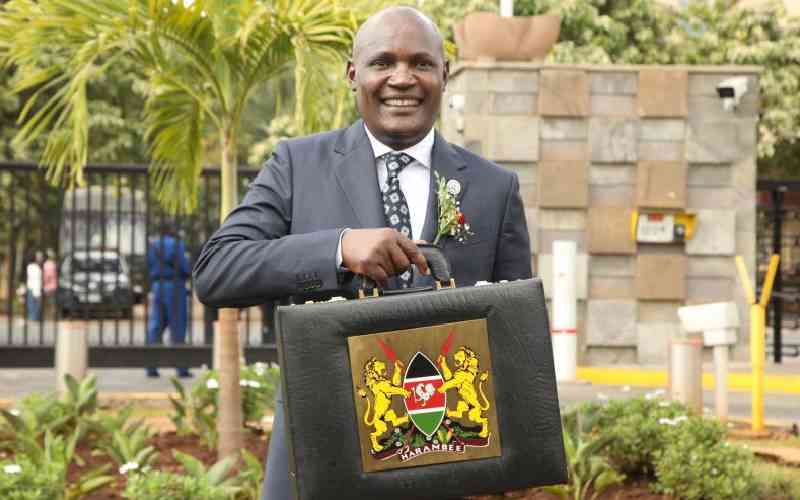
CJ David Maraga addreses press at Milimani Courts acompanied by other judges. He said that judiciary is not an impediment in the fight against corruption. [Georgte Njunge / Standard]
The Judiciary derives its judicial authority from the people. It interprets the Constitution “in a manner” that promotes its purposes, values and principles; advancing the rule of law, human rights, contributes to good governance and fundamental freedoms as stipulated in the Bill of Rights. In exercising its judicial authority, the Judiciary is obliged under the Constitution to protect and promote the purpose and principles of the Constitution.







